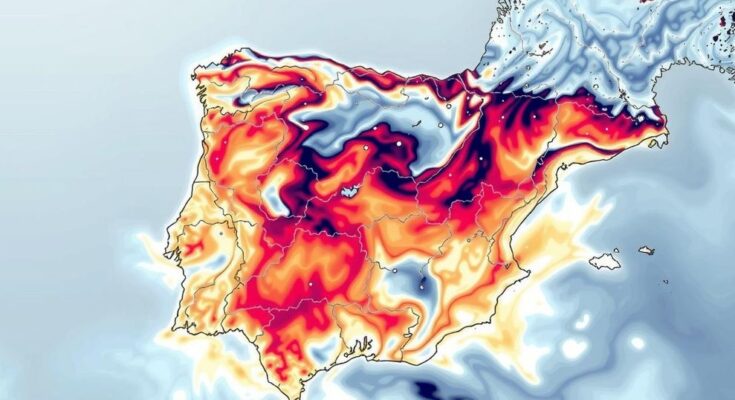A study reveals that due to climate change, Spain has lost an average of eight winter days annually over the past decade, affecting agricultural practices and ecosystems. Approximately 62% of provinces experience reduced winter conditions, with León being the most impacted. The analysis highlights the broader trend across Europe, emphasizing the necessity for climate action to address the persistent rise in temperatures and its ramifications.
Climate change is having a significant impact on winter conditions in Spain, resulting in an average loss of eight winter days annually over the past decade. A study conducted by Climate Central highlighted that at least 62% of Spanish provinces are experiencing warmer winters, with León being the most affected province. Despite certain regions displaying resilience, such as the Canary Islands with no recorded losses attributable to climate change, the overall trend presents increased challenges for agriculture and ecosystems, especially concerning fruit tree dormancy, which is essential for optimal yields.
The study analyzed data across 123 countries and 901 cities from 2014 to 2023, revealing patterns of diminished winter temperatures particularly in Europe, where countries like Denmark and Latvia have lost over three weeks of winter. The findings emphasize the urgency to address fossil fuel dependency to mitigate further warming and the associated ecological repercussions.
In Catalonia, for instance, Lleida has lost the most winter days at 11 per year, while cities like Granada face substantial impacts, with lost days totaling 14. Meanwhile, expert opinions underscore the concern over the alteration of temperature patterns, leading to fewer frosty nights and disrupted ecological balances that could complicate agricultural practices in the Mediterranean region.
As global temperatures rise due to anthropogenic activities, climate change is progressively altering seasonal weather patterns. In the Northern Hemisphere, significant reductions in winter days have been recorded due to this phenomenon. Warmer winters disrupt natural biocycles, influencing agricultural productivity, especially for crops reliant on specific cold conditions. Countries, particularly in Europe and parts of Asia, are at the forefront of these changes, witnessing increased frequency of above-freezing winter days. Experts warn of potential long-term repercussions, particularly for sensitive agricultural sectors, highlighting urgent climate action.
In summary, climate change poses a formidable challenge for Spain’s winters, diminishing the number of cold days and thereby affecting natural systems and agriculture. With many regions losing substantial winter days, it is evident that urgent measures are necessary to counteract the ongoing impacts of climate change. The consequences of these changes underscore the interconnectedness of ecological balance and agricultural stability, necessitating a concerted effort to phase out fossil fuel reliance and promote sustainable practices.
Original Source: www.lavanguardia.com




